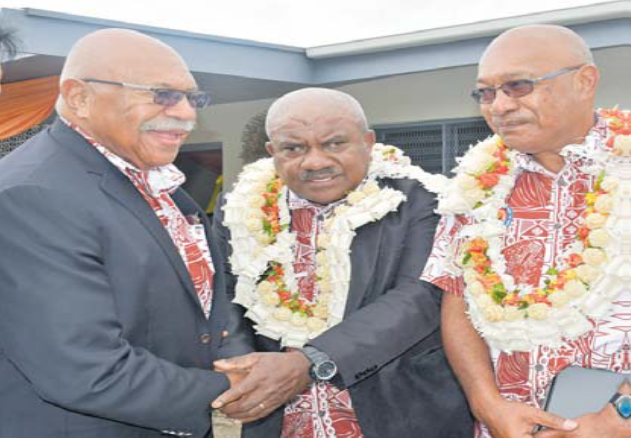FIJI has more than 700 registered cooperatives that hold assets worth $151 million that generate $26 million in revenue.
While acknowledging the contribution cooperatives to Fiji’s National Development Plan, Prime Minister Sitiveni Rabuka said these cooperatives have enabled Fijians to come out of poverty and gain financial independence.
“Across Fiji, we have seen firsthand how cooperatives in agriculture, fishing, and retail have transformed lives,” Mr Rabuka said while speaking last Thursday in Lautoka at the launch of Uluinatabua Teachers’ Village, a new multi-million-dollar housing project by the Fijian Teachers Association Cooperative Thrift Limited.
“Today, Fiji has over 700 registered cooperatives and about 40,000 members.
“Collectively, these cooperatives hold assets worth $151 million, generate $26 million in revenue, and report $2.5 million in profits.”
He said to further strengthen this movement Government has introduced the Cooperative Development Fund, which provided grants to boost cooperative enterprises nationwide.
The Prime Minster pointed out projects that have benefitted from this Fund.
“The Narocake Cooperative Limited in Lovu, owned by the Vanua Narocake, has secured agreements for the sale of treated pine timber and logs, while also building homes for its members.
“Matabani Cooperative in Nadroga has embraced renewable energy initiatives.
“And Drawa Carbon Cooperative is generating income from carbon trading while supporting reforestation efforts.
“These examples show that innovation is at the heart of the cooperative movement.
“From carbon trading to eco-tourism, Fijian cooperatives are demonstrating that collective action can address environmental challenges while driving economic growth.”
He added this was why cooperatives was central to the National Development Plan and to the United Nations Sustainable Development Goals.
“They are engines of growth, sustainability, and empowerment.”
Note: This article was first published on the print version of the Fiji Times dated August 26, 2025

